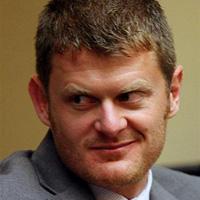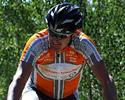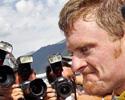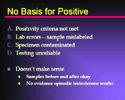News feature, July 1, 2008
CAS delivers final blow to Landis legal challenge

|
Nearly two years after he stood triumphantly atop the Tour de France podium in Paris, Floyd Landis has seen his last hopes of regaining the 2006 title dashed when the Court of Arbitration for Sport (CAS) upheld his two-year suspension on Monday. The world's highest sporting authority also ruled that the American pay $100,000 costs to the US Anti-Doping Agency (USADA), in a case that has already cost both Landis and his opponents several million dollars. Cyclingnews' North American Editor Mark Zalewski takes a closer look at the panel's decision.
While the original arbitration ruling by the American Arbitration Association (AAA) was a split decision, including a clear wag of the finger towards the French national anti-doping laboratory (LNDD) in Paris, this ruling is a clear 3-0 home-run for the US Anti-Doping Agency. All arguments levied by Landis were countered by USADA in the panel's mind, with the panel even going so far as to wag its own finger at the legal strategy used by the Landis side.
The science
The actual appeal process began with a determination of the grounds of the appeal. The USADA lawyers first filed a motion to exclude any new arguments from the case beyond what was presented in the original arbitration, and the CAS agreed. On the Landis side, the CAS ruled against USADA in its attempts to move the start date of his suspension later than January 30, 2007. But it also did not agree with Landis that his September 20, 2006 date, the day he was sacked from his Phonak team, should serve as the start date either.
The CAS requested a list from both sides that would outline the issues of the case. The Landis side provided 17 separate issues, attacking the entire testing procedure of the French laboratory - but essentially asking whether "USADA had established to a comfortable satisfaction that Floyd Landis committed and anti-doping violation".
Conversely, the USADA listed only two issues:
1. Did the AAA panel err in finding that [Landis] committed an anti-doping rule violation during the 2006 Tour de France?
2. What should be the start date of [Landis'] suspension given his participation in the USA Cycling-sanction level 100 race in August 2007?
The panel analysed the first issue against its own Rule 57 which "requires a hearing de novo", or new trial. USADA essentially asked that the CAS panel confine its deliberation to the AAA hearing. The panel decided against determining whether the AAA panel was correct or not, preferring to determine the merits of the case on its own and "not to limit itself to assessing the correctness of the AAA award".
"In any event, even if there had been a departure from the ISL, it did not cause the adverse analytical finding."- The CAS panel found that any breaches of international laboratory standards had not affected the outcome of the case. |
The panel then analysed the case in a number of different areas, ranging from quality controls and chain of custody to illegible handwriting and rule interpretations, determining its own independent finding for each. The panel utilised the "international laboratory standards" (ISL) as its framework for determining whether or not a violation occurred.
The finding of the panel in regards to the accreditation of the LNDD was that since it performed the analysis within ISL standards the burden of proof rested solely with Landis and that he needed to "show a departure from these standards occurred". This overarching argument was cross-applied in subsequent sections contesting individual aspects of the sample testing and analysis, such as linearity testing, peak identification, IRMS testing, chromatography and manual integration.
In each, the panel found no ISL violation proved by Landis, but also went beyond that saying, "In any event, even if there had been a departure from the ISL, it did not cause the adverse analytical finding." This statement was reiterated throughout the 58-page decision.
The procedurals

|
Outside of the strictly scientific areas, such as the alleged improper chain of custody procedures by the LNDD, the panel continued with the above cited statement. An interesting finding by the panel in this area was that "the ISL requires laboratories to comply with 'concepts' found in the WADA Technical Documents on chain of custody, not literal compliance... [USADA] established that it complied with the 'concepts' found in the WADA Technical Documents. The Tribunal accepts the evidence of Dr. Ayotte [director of a WADA accredited laboratory in Montreal] that there is no requirement of a single document, and that as long as each staff person in possession of the bottle is identified, a chain of custody is established."
In the areas of questionable handwriting on official testing documents the panel again referred to the "concepts" argument. And again, the panel declared that even if there were a violation, it would "not undermine the adverse analytical finding (AAF) since it did not contribute to the AAF".
An area that was not framed with the ISL standard was how the body metabolises steroids. Landis argued that only one testosterone metabolite tested out of range in the B sample and that the US Olympic Committee laboratory requires at least two. Further, that the four total metabolites' values should be consistent with each other. USADA countered that different people metabolise testosterone differently and that its administration to the body impacts its metabolisation.
The result of this section was more of a push than favoring one side over the other, saying that current data on the subject was inconclusive.
Regarding the observation of the B sample testing by Mr. Landis' witness, Dr. Douwe de Boer, the panel did agree with Landis that his signature on the protocol despite his reservations of the procedure did not constitute a waiver of those reservations. However, the panel agreed with USADA that his reservations were covered by the French Committee on Accreditation (COFRAC).
The allegations

|
The panel next addressed the contentions by Landis that the LNDD and USADA committed various acts of fraud, forgery, cover-ups and false statement. This included allegations of at least "four fraudulent documents" from LNDD, that USADA made "false statements about the accuracy of the instrument in measuring all of the controls," that significant data was deleted by the LNDD and that USADA's "entire evidentiary plan had changed over the course of the proceedings".
In response the panel stated it found "no evidence to sustain any of these serious allegations. Moreover, the panel is surprised that such serious allegations should be pursued in the closing brief when it must have been clear at the end of the hearing that there was no evidential basis from expert testimony or otherwise to support them."
The panel was quite curt regarding Landis' attorney Maurice Suh's focus on rhetorical eloquence over warrants and evidence in persuading the panel when he said: "Mr. Landis' search for the truth in this case has been obstructed - often with devastating results - by the presence of bias, inconsistent and false statements and fraudulent documents." French attorney Jan Paulsson took strong objection to these statements by Suh when he said in the hearing:
"But I think this is the time in the post hearing briefs not so much for prose, but for references because it would be of assistance to the arbitrators in considering the rhetoric of persuasion which we've heard today. That was the time for that and now it would be good to have comprehensive references.
"...if [Mr. Suh] continues to pursue the themes of bias in the lab and cover-up in light of the evidence of these hearings, it would be handy not to have a lot of adjectives about it, but just notations of what are - what is the evidence of those propositions, in objective form ... what I heard was rather the language of indicia of falsity rather than a clear statement to the effect that there had been bias and cover-up which of course are strong accusations."
The sanctions

|
As previously stated, the CAS upheld the sanctions levied by the USADA and the UCI, stripping Landis of his Tour de France stage and overall win and suspending him for a period of two years. As to when that two-year period began was another area of contention, with the USADA claiming that Landis' participation in the Leadville 100 race was a violation of his self-imposed voluntary non-competition letter to the French Anti-Doping Agency (AFLD) on January 30, 2007. On the other side, Landis claimed that his suspension effectively started when his Phonak team terminated his contract in September of 2006, citing Tyler Hamilton's case as a precedent.
The panel agreed with neither Landis nor the USADA, choosing instead to prefer the actual letter sent by Landis in January of 2007 stating his intention of voluntary non-competition. USADA claimed that the Leadville 100 race was a sanctioned event, and even brought in USA Cycling's chief operating officer Sean Petty to confirm this, which he did.
However, the panel took into consideration that Landis had made enough efforts to determine that the event was not a violation by contacting the promoter and Mr. Petty himself; and that since it was a local fundraising event, with no prize money awarded nor a racing license required to participate, that it did not constitute a violation.
The panel also determined that the Hamilton case was sufficiently different from the Landis case in that Landis had ample time and opportunity to declare his voluntary non-competition status in a letter following the B sample test in August of 2006 and the date he did send his letter, January 30, 2007. Therefore, they preferred the actual date of the letter.
Finally, both sides argued that the other should pay for the cost of mounting their respective cases. Landis again argued the allegations of misconduct in this area. The USADA argued that the entire case strategy brought by Landis was "to do more than present a vigorous defense", stating that witnesses were asked to be present at the cost of the USADA but never actually called, as well as other actions as "a strategy to take down the French lab in an embarrassing way".

|
Not only did the panel not find any "litigation misconduct" on the part of the USADA, it almost went the opposite saying that "if there was any litigation misconduct it may be ascribed to [Landis]".
If there was any short answer as to why the CAS sided with the USADA, it comes here:
"Although [Landis] had the right to pursue a comprehensive de novo appeal in such an important matter, all of its multiple defenses have been rejected as unfounded. All that [Landis] has established after a wide-ranging attack on LNDD is that there were some minor procedural imperfections. This was not surprising in view of the unprecedented scope and intensity of the technical challenges made against LNDD by [Landis] and his witnesses."
Further, the panel critiqued the insistence of Landis in pursuing the challenged previously rejected by the AAA, saying that a more focused challenge would have been preferable. It also sided with the USADA in the need for a number of witnesses to travel to New York who were never actually called, resulting in unnecessary costs. The result is the $100,000 award to the USADA.
The future?
While this ends Landis' path on reclaiming his Tour de France title in terms of the sporting world's official legal channels, he does have the option to appeal to the Swiss Federal Court in the next 30 days. In a statement release by his attorney Landis did not discount any options. "I am saddened by today's decision," he said. "I am looking into my legal options and deciding on the best way to proceed."
USADA head Travis Tygart pressed Landis to admit to doping. "Maybe with finally being held accountable he might finally realise that the best thing for him to do is acknowledge his mistake to dope and try to come clean," Tygart said. "But that's a decision he will have to decide."
As for his racing future, Landis has been previously linked with the Rock Racing team, with owner Michael Ball seeking Landis' advice for this year. Landis has also been active on the endurance mountain bike circuit, taking second place in the Leadville race that was such a hot-button issue in the case. However, Landis' statement regarding the CAS decision revealed no further racing intentions.
Cyclingnews' coverage of the Floyd Landis case
May
29, 2009 - French authorities summon Landis and Baker
September 28, 2008 - Landis
takes case to US federal court
September 10, 2008 - Landis
signing with current Health Net-Maxxis team for 2009
July 1, 2008 - CAS
delivers final blow to Landis legal challenge
June 30, 2008 - Landis
loses final appeal
June 28, 2008 - Landis
decision due Monday
March 12, 2008 - Landis'
judgment day nears
October 21, 2007 - Landis
files appeal with CAS
October 18, 2007 - AFLD
takes another look at Landis case
Thursday, October 11 -
Landis continues fight, appeals to CAS
Saturday, September 22
- UCI officially names Pereiro 2006 Tour champion, Landis case raises issues
Friday, September 21 -
Landis' appeal denied, two year suspension levied

